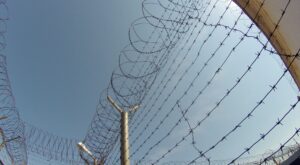BY GABRIELA VALENTIN
Globally, the climate crisis has a disproportionate impact on women’s access to their human rights. This is certainly the case in the Caribbean, where the climate crisis is worsening existing gender inequities.
From Hurricane Dorian in the Bahamas, to earthquakes in Puerto Rico, and volcanic eruptions in St. Vincent, the Caribbean has experienced particularly daunting effects of climate change in a series of catastrophic events over the past few years, with recovery efforts eventually running concurrently with the COVID-19 pandemic. The small tropical islands and coastal communities of the Caribbean are extremely vulnerable to the climate crisis and all its effects, which impact all aspects of life for women in the region. Women in the Caribbean disproportionately bear the brunt of these events in ways that affect their fundamental rights, including through displacement, loss of income, and increased exposure to violence, among many others.
In the Bahamas, studies suggest that displacement caused by Hurricane Dorian affected more women and girls than men and placed women and girls at greater risk of gender-based violence in temporary shelters. The risk is even higher for migrant women in the Bahamas and for Bahamian women of Haitian descent, who often face discrimination due to their lack of status in the country. In Puerto Rico, the destruction of the only hospital on the municipal island of Vieques has left the local population without access to health care since Hurricane Maria struck in 2017. As a result, women in Vieques have even more limited access to health care, including critical gynecological and reproductive health care. In Dominica, Hurricane Maria displaced 90 percent of the Kalinago Indigenous community. Kalinago women are the keepers of ancestral knowledge that is crucial to Indigenous communities’ way of life, both culturally and economically. After the hurricane destroyed economic sectors like agriculture and tourism, Kalinago craft-makers, who are predominantly women, lost income their families depended on. These examples make clear that the climate crisis is a women’s rights crisis.
As the world continues to grapple with how to react to the rapidly intensifying climate crisis, the lack of information about its full effects on women is a barrier to properly addressing them. In the Caribbean in particular, not enough women-centric studies explore the impact of the climate crisis on the region’s women. Identifying and studying the effects in these small island nations is the best starting point to mitigating them, because this knowledge can inform Caribbean governments’ policy decisions. Because of its unique geographical position and cultural makeup, and because women often engage in unpaid work, such as caregiving and domestic work, are primary family caregivers, and are often the heads of households, policies and efforts to address the climate crisis must address the distinct challenges women in the Caribbean face. Armed with knowledge, governments can adopt climate policies aimed at protecting the full spectrum of Caribbean women’s human rights and the environment, as opposed to development-centric policies that prioritize profit.
This Earth Day, States should commit to protecting Caribbean women’s human rights by investing in research and documentation of the disproportionate effects the climate crisis has on them, so that they can fully understand and address these disparities.



